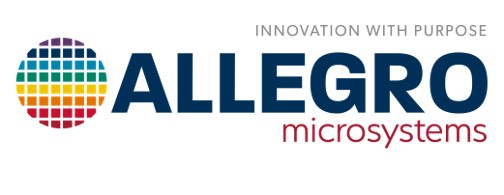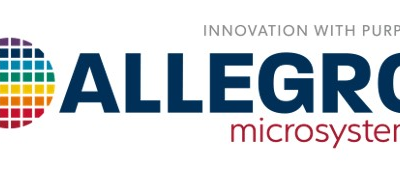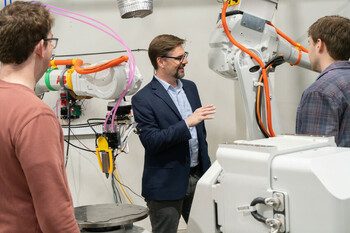Tech News
How is quantum technology used in the military? – Army Technology

Quantum technology is at the forefront of most advanced nations’ long-term defence planning.
The dangers quantum technology poses to encryption networks has made it a point of increasing geopolitical sensitivity – forcing the US, China and other major world players to develop national quantum strategies.
The Pentagon, Chinese People’s Liberation Army (PLA) and Nato are among the leading military bodies investing heavily in quantum technology, according to GlobalData’s Quantum Computing in Aerospace, Defense and Security – Thematic Intelligence report.
The gold standard of business intelligence.
Find out more
There are three main strands used in defence: quantum computers (to process large amounts of data faster and more accurately than traditional computers), quantum sensing (detecting enemy submarines or mines) and quantum communication (secure channels for communication protected from eavesdropping).
Close ties to Microsoft, IBM, Intel and other tech giants give the US a key advantage in developing quantum technology for military applications.
In 2022, President Biden signed the CHIPS and Science Act, which “authorises new investments in core quantum research programs” while the US military also announced $3bn of federal quantum projects, with an additional $1.2bn coming from the National Quantum Initiative.
The Pentagon’s so-called black budget projects are expected to further fund quantum computing initiatives.
Access the most comprehensive Company Profiles on the market, powered by GlobalData. Save hours of research. Gain competitive edge.
Your download email will arrive shortly
We are confident about the unique quality of our Company Profiles. However, we want you to make the most beneficial decision for your business, so we offer a free sample that you can download by submitting the below form
While the US may struggle to compete with China’s focused research in quantum communication through its centralised, state-led approach, the sheer range of hardware research increases the likelihood of major quantum breakthroughs happening in Washington first.
The US CHIPS and Science Act is open in its intentions to “counter China” – which will be no mean feat.
China is committing more than $15bn to quantum computing over the next five years and is drawing expertise from across the country through its $10bn National Quantum Lab at USTC Hefei.
Over the long term, China’s autocratic economic model will be an advantage over the US; less bureaucracy and pushback against quantum investments.
While Beijing maintains a cloud of secrecy around the nature of its quantum investments, “intermittent announcements demonstrate its strong position in quantum computing”, the report adds.
For example, the PLA is the world leader in quantum communication through the Micius satellite project and the Beijing–Shanghai Quantum Secure Communication Backbone. But quantum supremacy claims from some of the world’s fastest photon-based and supercomputing quantum computers show its true potential.
While far behind the US and China, the EU’s Quantum Technologies Flagship program will provide $1.2bn of funding over the next ten years.
Individual member states are rolling out various R&D initiatives, with France and Germany, Europe’s largest economies, having the most comprehensive national strategies.
Germany announced $3bn to develop quantum technologies in May 2023, and although start-ups in the Netherlands, Finland, Spain and Austria have made notable contributions, this number remains unsurpassed.
In February 2021, Nato Defence Ministers endorsed the Emerging and Disruptive Technologies (EDT) Strategy within which quantum-enabled technology was one of the nine technology areas promoted.
Nato’s Defence Innovation Accelerator for the North Atlantic (DIANA) has been a particular driver of quantum investment.
DIANA’s conceptualisations of quantum underwater warfare, inertial navigation and chemical detections have been widely used as benchmarks for the technology’s military applications.
The EU and Nato’s investments will be driven in part by Russia – a newer quantum computing player.
Alongside India, Moscow established a quantum agenda in 2020. Both governments committed $1b, with Russia’s National Quantum Laboratory, led by its state atomic energy company, Rosatom, pledging to specialise in applying quantum technologies in the nuclear industry.
However, the report concludes that both countries’ smaller talent pools and loosely built ecosystems mean it will be several years before they are competitive with the US, China, and other more established quantum players.
Give your business an edge with our leading industry insights.
The gold standard of business intelligence.
Find out more
Give your business an edge with our leading industry insights.
Give your business an edge with our leading industry insights.
I consent to Verdict Media Limited collecting my details provided via this form in accordance with Privacy Policy
View all newsletters from across the GlobalData Media network.
The leading site for news and procurement in the defence industry
Powered by 
© Verdict Media Limited 2024
Tech News
Exploring Startup Opportunities In Alternative Fuel Technology – Forbes

In this article, we explore four startup opportunities in alternative fuel technology, ranging from … [+]
In the context of the ever-growing energy consumption demands of our global civilization, especially bearing in mind the rising living standards in some of the most populous areas in Asia and Africa, combined with the environmental impact of the energy sector, innovations in energy and fuel technology are likely some of the most important and impactful technological developments to look forward to in the coming decades.
With this in mind, if you are a startup founder looking to change the world for the better alternative fuel technology is a promising field to focus your energy on. Startups at the forefront of this movement have the opportunity to revolutionize the transportation sector and accelerate the transition to a sustainable future. Моreover, because of the environmental impact of such technologies finding funding for your startup could be easier because of the availability of public funding for green technologies in a generally favorable regulatory environment.
In this article, we’ll explore four startup opportunities in alternative fuel technology, ranging from electric vehicle charging infrastructure to biofuels, highlighting their potential for innovation and market disruption.
Electric vehicles (EVs) are becoming increasingly popular as consumers and governments prioritize cleaner transportation options. However, the widespread adoption of EVs hinges on the availability of reliable and convenient charging infrastructure.
Startups in this space can focus on developing innovative solutions such as fast-charging stations, wireless charging technology, and smart grid integration. For example, companies like ChargePoint and EVgo are pioneering the development of EV charging networks across the globe, catering to the growing demand for electric mobility.
The opportunity for startups lies in addressing key challenges such as scalability, interoperability, and user experience. By leveraging advanced technologies and strategic partnerships, startups can play a vital role in expanding EV charging infrastructure and accelerating the adoption of electric vehicles.
Battery technology is a critical component of alternative fuel technology, enabling energy storage for electric vehicles, renewable energy systems, and portable electronics. In fact, energy storage technology is becoming a choke-point for most of the mass adoption and practical feasibility of a lot of EV and alternative energy solutions.
Startups in this space can focus on developing advanced battery chemistries, materials, and manufacturing processes to improve performance, safety, and cost-effectiveness. For example, companies like Tesla and Panasonic are leading the charge in lithium-ion battery production, driving down costs and improving energy density.
The demand for high-performance batteries is expected to surge as electric vehicles and renewable energy installations continue to grow. Startups that can innovate in areas such as solid-state batteries, silicon-anode technology, and battery recycling have the potential to disrupt the market and capture significant market share. Moreover, advancements in battery technology can unlock new applications such as grid-scale energy storage and electric aviation, further expanding the market opportunity for startups.
Hydrogen fuel cells offer a promising alternative to traditional combustion engines, providing zero-emission power for various applications, including vehicles, drones, and stationary power systems. Startups in this space can focus on developing innovative solutions for hydrogen production, storage, distribution, and fuel cell technology.
For example, companies like Ballard Power Systems and Plug Power are leading the commercialization of hydrogen fuel cell technology for transportation and industrial applications.
The scalability and versatility of hydrogen fuel cells present a compelling opportunity for startups to drive innovation and market penetration. By overcoming technical challenges such as cost, efficiency, and infrastructure, startups can position themselves as key players in a possible transition to a hydrogen-based economy. Additionally, government incentives and industry partnerships can provide critical support for startups seeking to capitalize on the growing demand for clean energy solutions.
Biofuels offer a renewable alternative to conventional fossil fuels, derived from organic sources such as biomass, algae, waste materials, or agricultural residues. Startups in this space can focus on developing sustainable biofuel production processes that minimize environmental impact and maximize energy efficiency.
For example, companies like Renewable Energy Group and Gevo are leveraging advanced biotechnology and feedstock optimization to produce low-carbon biofuels for transportation and heating applications among others.
The abundance of organic feedstocks and the potential for carbon neutrality make biofuels an attractive option for reducing greenhouse gas emissions and mitigating climate change. Startups that can innovate in biofuel production, distribution, and certification have the opportunity to disrupt traditional energy markets and drive the transition to a more sustainable energy future. Additionally, government mandates and corporate sustainability initiatives create a favorable regulatory environment for biofuel startups to thrive.
Tech News
GHSP Leverages Allegro MicroSystems' Technology to Shift – GlobeNewswire

| Source: Allegro MicroSystems, Inc.
MANCHESTER, N.H., April 30, 2024 (GLOBE NEWSWIRE) — Allegro MicroSystems, Inc. (“Allegro”) (Nasdaq: ALGM) a global leader in power and sensing semiconductor technology for motion control and energy efficient-system is pleased to announce, that GHSP, a global provider of mechanical and electromechanical systems and portfolio company of JSJ Corporation, is closely collaborating with and has adopted Allegro’s best-in-class gate driver and vehicle sensor technology for its new eVibe vibration enhancement system.
In the rapidly evolving world of xEV technology, there is a new class of xEV enthusiasts who crave a more immersive motoring experience. GHSP’s eVibe system transforms xEV driving by providing drivers with the noise and vibrations that mimic the familiar feel and sounds of a traditional internal combustion engine. At the heart of this next-level technology, is Allegro’s A89500 motor driver and APS12215 Hall-effect latch, which provide best-in-class performance and switching capabilities.
“From the beginning, our challenge has always been to create a solution that would address a unique and growing xEV market segment,” said Dan Dawiedczyk, President of GHSP. “We are excited to collaborate and combine our industry experience and expertise, to help bring our vision to life. Together, Allegro and GHSP are developing groundbreaking innovations. We look forward to a winning partnership for many years to come.”
Helping to elevate the end product, Allegro’s A89500 motor driver allows for high power density and fast switching to help provide instant response and feel. Its transient robustness and wide input voltage range make it a standout solution in the market. The APS12215 Hall-effect latch, on the other hand, provides high-temperature performance and stable switching capabilities, enabling the eVibe system to precisely track and monitor the position of the motors’ unbalanced weights, ultimately leading to a more realistic vibration experience. The eVibe technology allows several applications including ADAS, ICE emulation, or high performance.
“For more than a decade, Allegro has worked closely with market-leading automotive partners to develop innovative solutions that help shift the future of driving, power and performance in electric vehicles,” said Suman Narayan, Allegro’s Senior Vice President, Products. “Our latest collaboration highlights a new, growing market segment and demand for Allegro’s technology. We value GHSP’s automotive expertise and look forward to our continued partnership as we develop solutions that drive innovation.”
The impact of eVibe extends beyond just the driving experience. It represents a shift towards the future of xEV technology and the way owners engage with their vehicles. From mimicking an idle feel to simulated engine throttle and high-speed gear shifts via premium vibration indicators, GHSP’s technology is providing drivers with a more immersive and connected drive. This innovation has the potential to reshape the xEV market, catering to a wider range of custom options and individual customer preferences, while also helping to further the adoption of electric vehicles.
On Thursday, May 2, GHSP and Allegro will host a virtual round table discussing “The Evolution of eVibe with GHSP and Allegro MicroSystems.” To learn more and register for this event please visit: https://allegromicro.com/en/applications/automotive
For more information about the eVibe system please visit: https://www.ghsp.com/evibe
About Allegro MicroSystems
Allegro MicroSystems, Inc. is a leading global designer, developer, fabless manufacturer and marketer of sensor integrated circuits (“ICs”) and application-specific analog power ICs enabling emerging technologies in the automotive and industrial markets. Allegro’s diverse product portfolio provides efficient and reliable solutions for the electrification of vehicles, automotive ADAS safety features, automation for Industry 4.0 and power-saving technologies for data centers and clean energy applications. For additional information, please visit https://www.allegromicro.com/en/.
About GHSP
GHSP is a privately owned company based in Grand Haven, Mich., that specializes in the design and manufacturing of innovative control systems and technology solutions primarily for the automobile and high-end appliance industries. Founded in 1924, GHSP has locations in North America, Europe and Asia. GHSP is a portfolio business within JSJ Corporation, a growth firm with global manufacturing, distribution and service businesses that focus on highly technical skills to deliver engineered solutions. Learn more at GHSP.com and JSJcorp.com.
Allegro Contact:
Laura Kozikowski
Sr. Director of Global Marketing and Corporate Communications
[email protected]
GHSP Contact:
Liz Hoffswell
Marketing & Communication Leader
[email protected]
Tech News
BAE Systems' electric drive technology to power GILLIG's new hydrogen fuel cell transit buses for zero-emission … – BAE Systems
-

 General Knowledge2 years ago
General Knowledge2 years agoList of Indian States and Capital
-

 General Knowledge2 years ago
General Knowledge2 years agoList Of 400 Famous Books and Authors
-

 Important Days4 years ago
Important Days4 years agoImportant Days of Each Month
-

 General Knowledge2 years ago
General Knowledge2 years agoCountries and their National Sports
-

 General Knowledge3 years ago
General Knowledge3 years agoCountry Capital and Currency
-

 Important Days3 years ago
Important Days3 years agoHoli
-

 General Knowledge2 years ago
General Knowledge2 years agoList of Indian President
-

 General Knowledge2 years ago
General Knowledge2 years agoList of Indian Vice President













